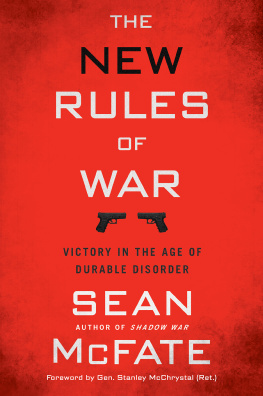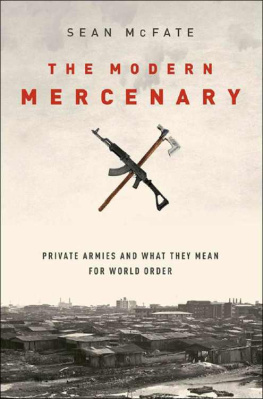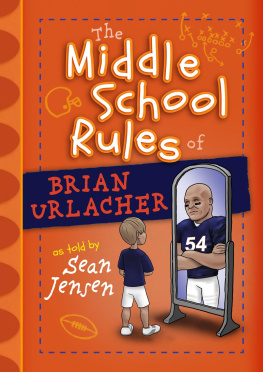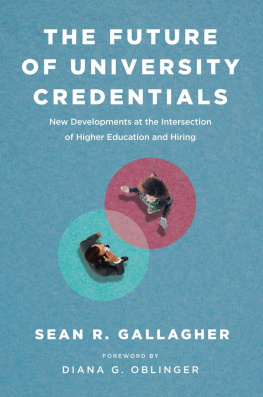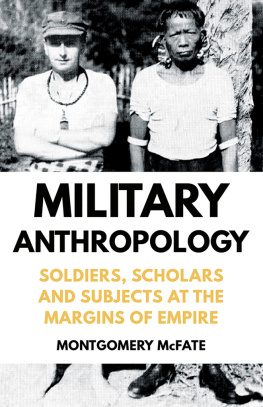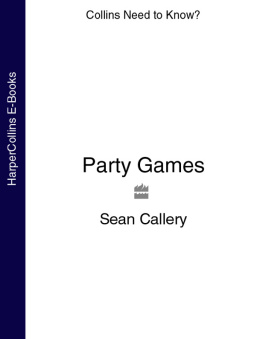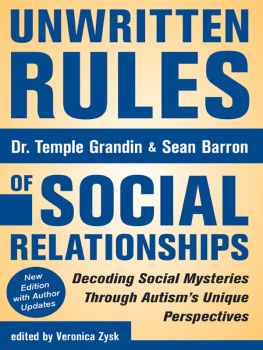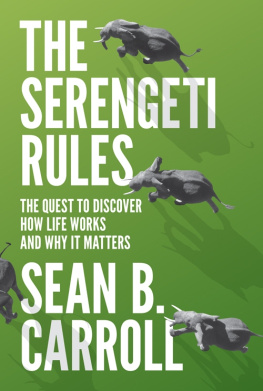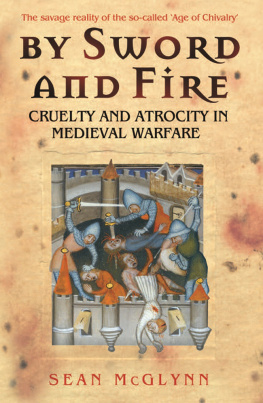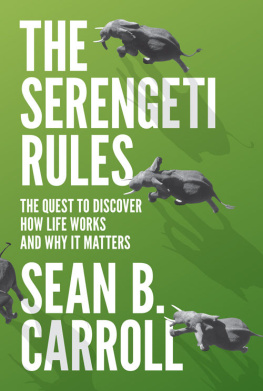Sean McFate - The New Rules of War: Victory in the Age of Durable Disorder
Here you can read online Sean McFate - The New Rules of War: Victory in the Age of Durable Disorder full text of the book (entire story) in english for free. Download pdf and epub, get meaning, cover and reviews about this ebook. year: 2019, publisher: William Morrow, genre: History. Description of the work, (preface) as well as reviews are available. Best literature library LitArk.com created for fans of good reading and offers a wide selection of genres:
Romance novel
Science fiction
Adventure
Detective
Science
History
Home and family
Prose
Art
Politics
Computer
Non-fiction
Religion
Business
Children
Humor
Choose a favorite category and find really read worthwhile books. Enjoy immersion in the world of imagination, feel the emotions of the characters or learn something new for yourself, make an fascinating discovery.
- Book:The New Rules of War: Victory in the Age of Durable Disorder
- Author:
- Publisher:William Morrow
- Genre:
- Year:2019
- Rating:5 / 5
- Favourites:Add to favourites
- Your mark:
The New Rules of War: Victory in the Age of Durable Disorder: summary, description and annotation
We offer to read an annotation, description, summary or preface (depends on what the author of the book "The New Rules of War: Victory in the Age of Durable Disorder" wrote himself). If you haven't found the necessary information about the book — write in the comments, we will try to find it.
-Admiral James Stavridis (retired), former Supreme Allied Commander at NATO
Some of the principles of warfare are ancient, others are new, but all described inThe New Rules of Warwill permanently shape war now and in the future. By following them Sean McFate argues, we can prevail. But if we do not, terrorists, rogue states, and others who do not fight conventionally will succeedand rule the world.
The New Rules of Waris an urgent, fascinating exploration of warpast, present and futureand what we must do if we want to win today from an 82nd Airborne veteran, former private military contractor, and professor of war studies at the National Defense University.
War is timeless. Some things changeweapons, tactics, technology, leadership, objectivesbut our desire to go into battle does not. We are living in the age of Durable Disordera period of unrest created by numerous factors: Chinas rise, Russias resurgence, Americas retreat, global terrorism, international criminal empires, climate change, dwindling natural resources, and bloody civil wars. Sean McFate has been on the front lines of deep state conflicts and has studied and taught the history and practice of war. Hes seen firsthand the horrors of battle and understands the depth and complexity of the current global military situation.
This devastating turmoil has given rise to difficult questions. What is the future of war? How can we survive? If Americans are drawn into major armed conflict, can we win? McFate calls upon the legends of military study Carl von Clausewitz, Sun Tzu, and others, as well as his own experience, and carefully constructs the new rules for the future of military engagement, the ways we can fight and win in an age of entropy: one where corporations, mercenaries, and rogue states have more power and nation states have less. With examples from the Roman conquest, World War II, Vietnam, Afghanistan and others, he tackles the differences between conventional and future war, the danger in believing that technology will save us, the genuine leverage of psychological and shadow warfare, and much more. McFates new rules distill the essence of war today, describing what it is in the real world, not what we believe or wish it to be.
Sean McFate: author's other books
Who wrote The New Rules of War: Victory in the Age of Durable Disorder? Find out the surname, the name of the author of the book and a list of all author's works by series.

